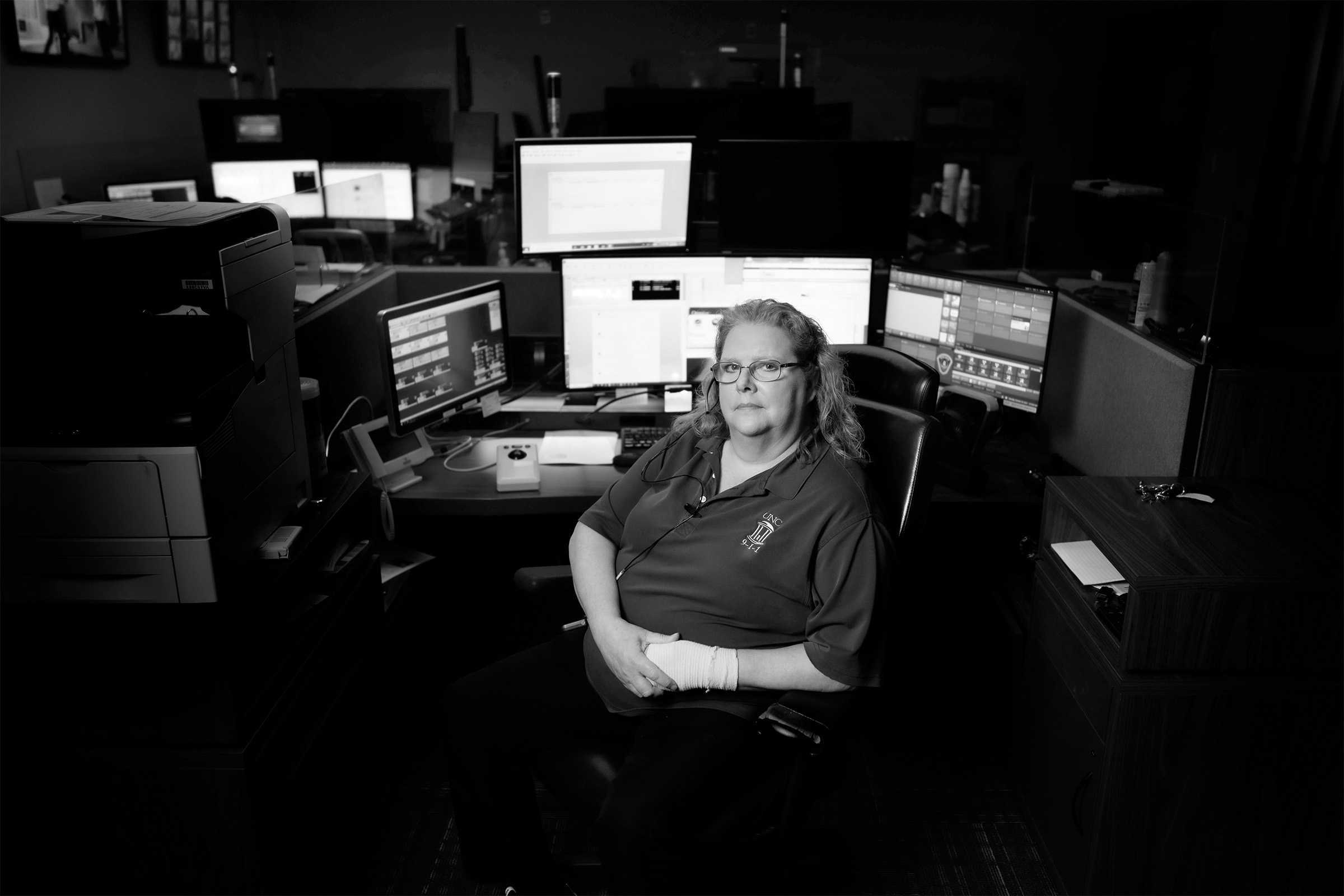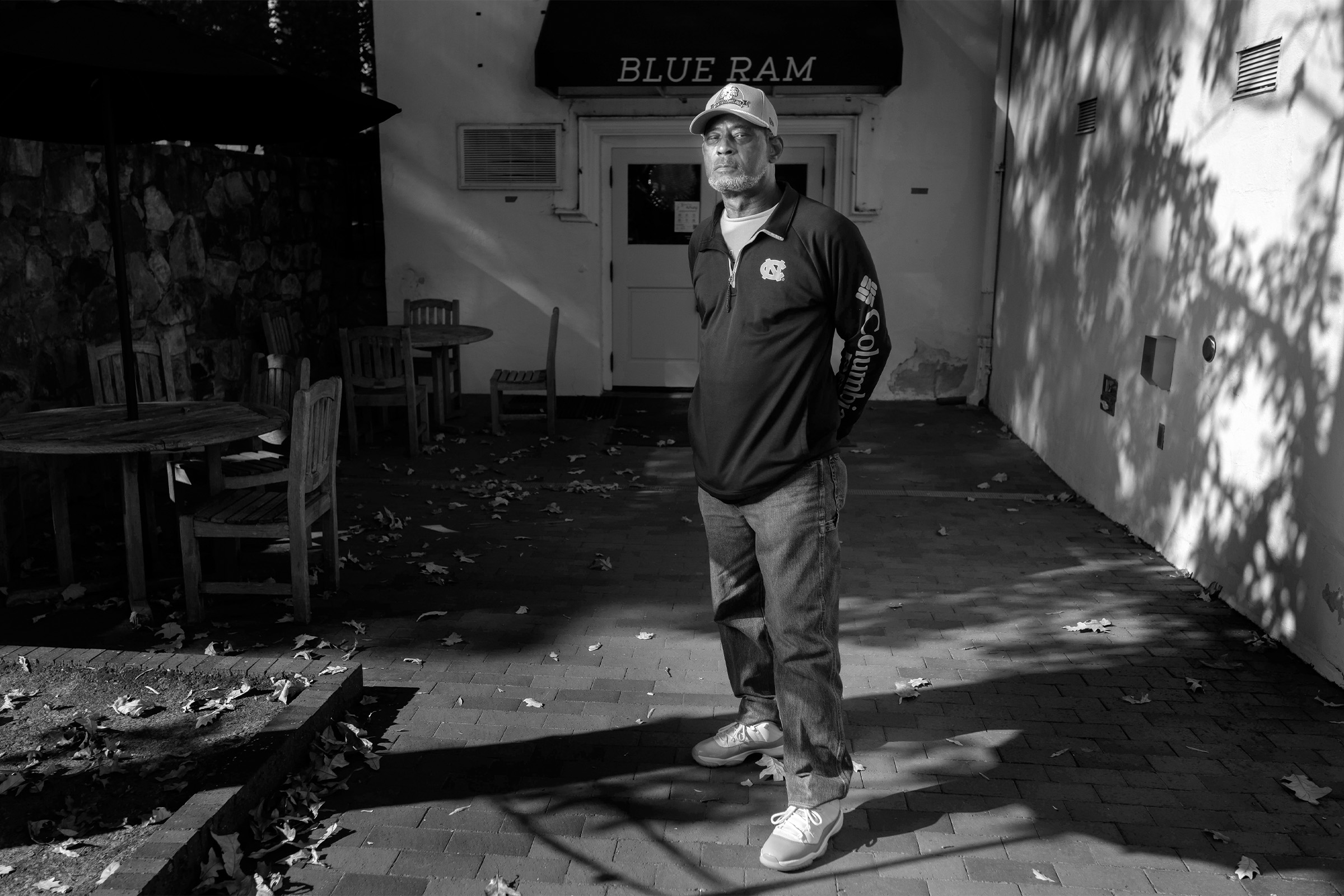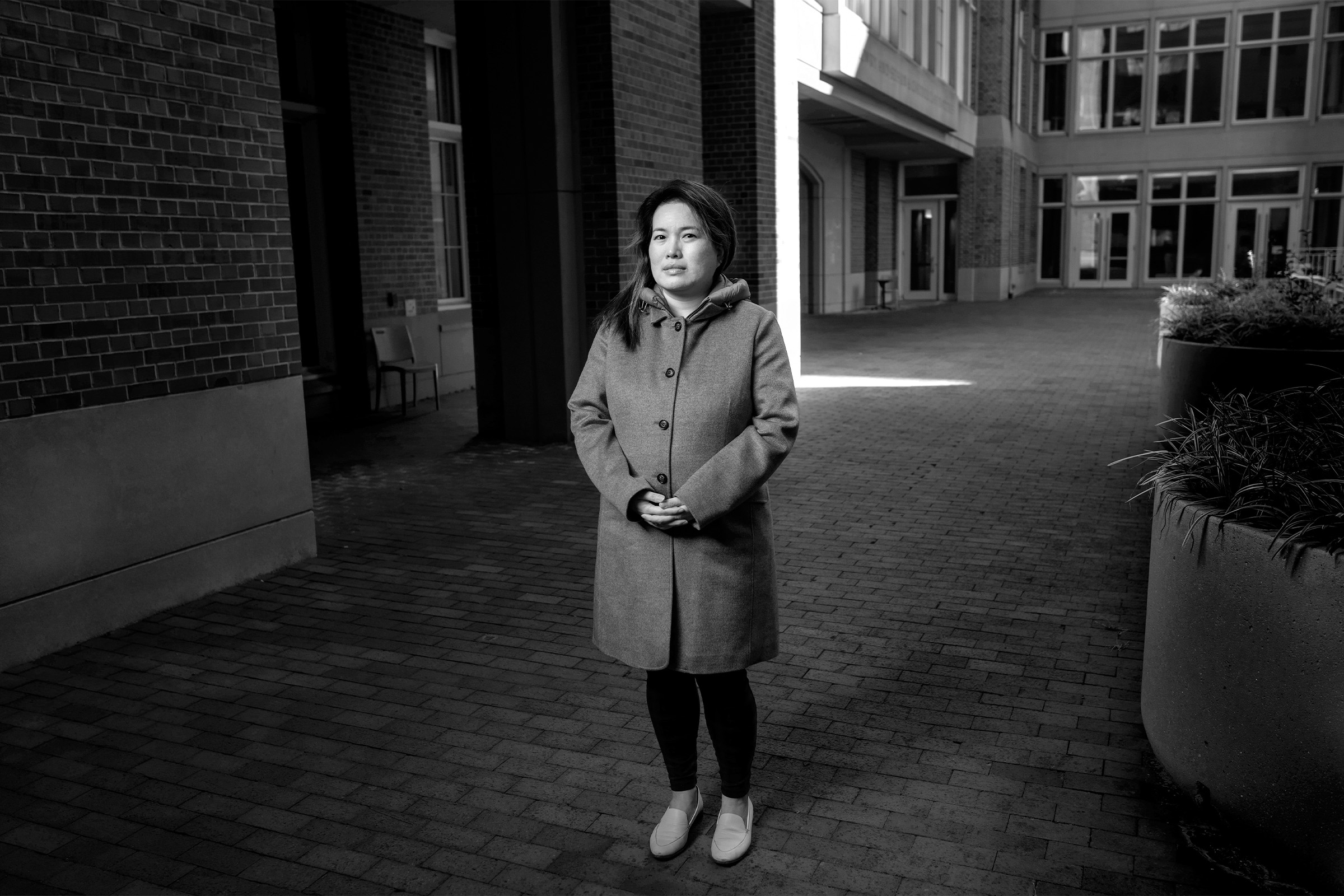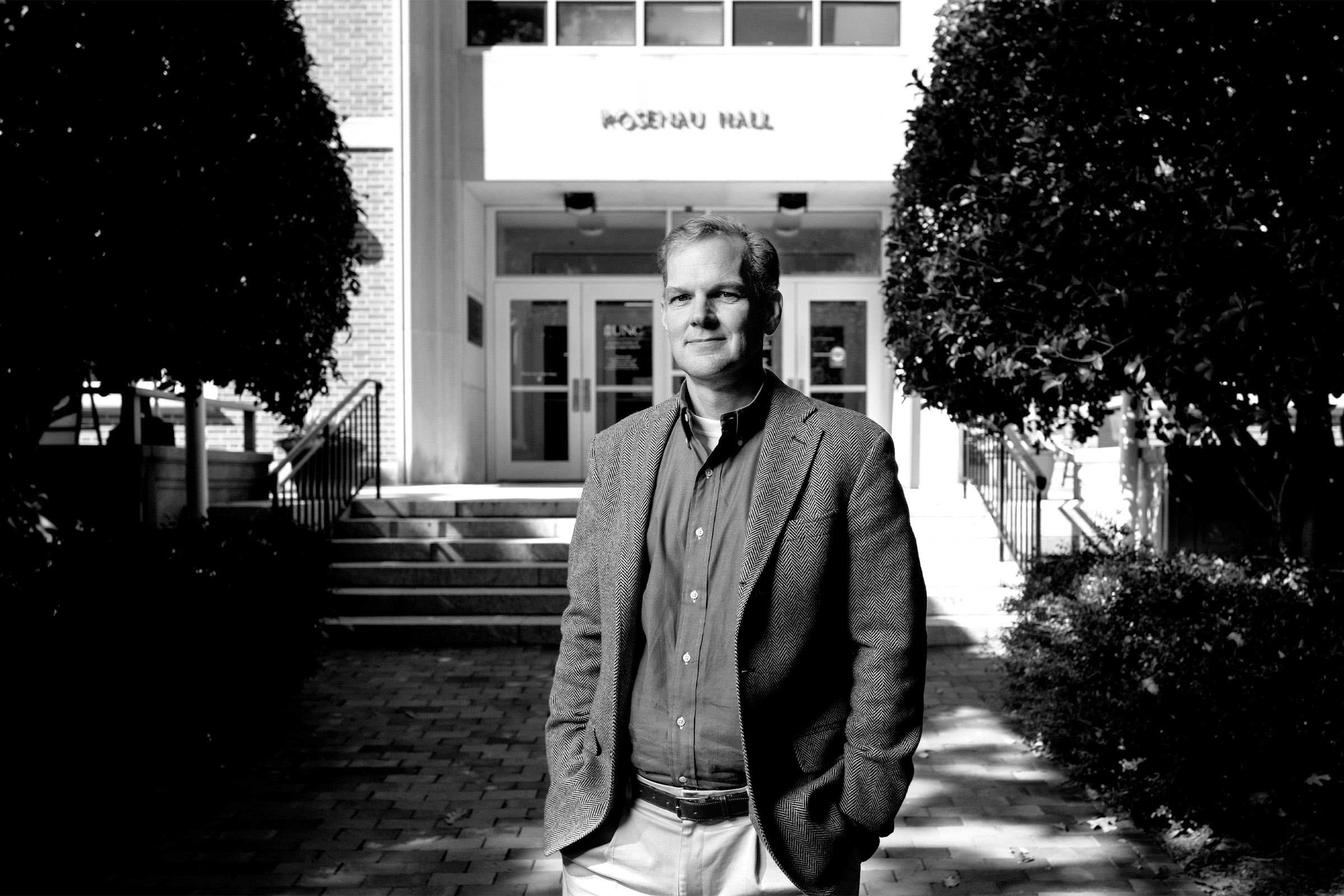Joe Fearrington, an environmental services technician in Housekeeping Services, jumped into action between Phillips Hall and the Campus Y. When the initial siren sounded, he kept students from walking toward Caudill Labs. “I told them to step into the building and not go toward the ‘accident,’ and I called it an ‘accident’ so as not to alarm them,” Fearrington said.
Around 20 students came inside Phillips. He directed them to the innermost hallway away from windows. He then went to the Campus Y and secured the lower door to the Blue Ram Market. “I was hustling to keep myself safe but more so to keep the students safe.”
Three weeks later, the local State Employees Association of North Carolina decided to recognize his heroic actions with a check for $200. When other SEANC chapters statewide learned of his efforts, they chipped in to increase the check to $10,200.
In ITS Manning Hall, Carol Durham was directing a School of Nursing class on clinical skills and health assessment meeting in a simulation lab. Because the class was practicing for one-to-one evaluation sessions, the 18 faculty and staff outnumbered the 12 students. The faculty and staff moved students to a corridor more than 20 feet away from windows in the locked suite. “While bewildered and uncertain about what was happening, we sheltered in place with respect and regard for each other while dealing with our own concerns and fears, sharing compassion and care for each other as we waited for additional information,” said Durham, professor and education-innovation-simulation learning environment director.
After the death of Associate Professor Zijie Yan, University leaders, staff and faculty worked to help Yan’s family in the early hours and days after the tragedy. Alison Friedman, director of Carolina Performing Arts, and Dr. Xiaoming Zeng, a research faculty member in the psychiatry department, volunteered to translate for Yan’s mother. They also assisted her by gathering materials from a local Chinese market to assemble a shrine and conduct a traditional paper-burning ceremony.
“In the face of such tragedy, it’s normal to feel helpless,” Friedman said, “so I was grateful to have something to contribute in a moment like this.”
“I think to live in this world, we need to not just care for ourselves, we need to care for others,” said Zeng. “I believe helping each other to ease mental pain is important for us as a human society and as a community, like UNC.”
Rachel Pittman and Carolina Performing Arts staff members set up space in the CURRENT ArtSpace + Studio and supplied coffee, tea and doughnuts the morning after the incident for faculty, staff and students in Yan’s department, applied physical sciences. “It was a simple thing to do, but it was so meaningful,” said Pittman. “Campus departments are families, and that family had experienced the unthinkable. I was grateful that CPA was able to play a small part in helping them reconnect, check in and just be together.”



